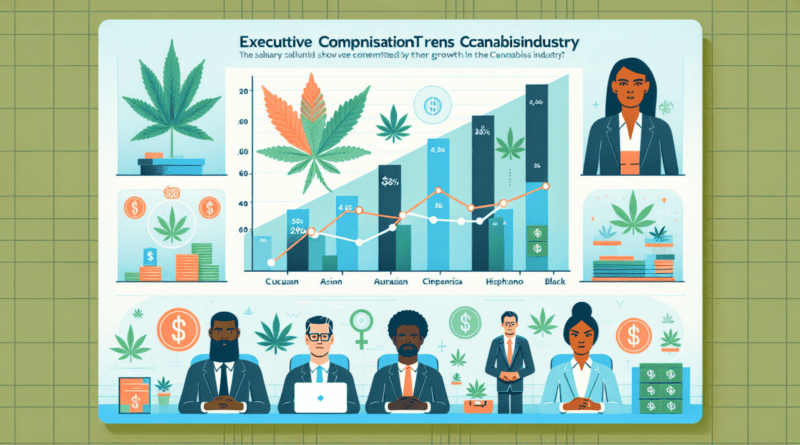Executive Compensation Trends in the Cannabis Industry
Significant Rise in CEO Salaries
The cannabis industry has been witnessing a notable rise in the compensation of its top executives. Recent data reveals that the average salary of a cannabis company CEO has reached an impressive $402,350, marking a 7% increase from the previous year, 2022. This upward trend in executive pay reflects the rapid growth and growing competitiveness within the industry. As the sector evolves, the pressure on companies to attract and retain top talent intensifies, driving up executive compensation packages.
In addition to attractive base salaries, benefits trends suggest that almost two-thirds of employees are inclined to leave their current positions for roles offering better benefits. This highlights the critical importance of robust compensation packages in maintaining a stable and satisfied workforce in the cannabis industry. Budtenders, who are on the front lines and earning an average of $42,000 a year, emphasize a significant discrepancy when compared to their top executives, underlining the growing CEO-worker pay gap.
Challenges Facing Edibles Manufacturers and the Call for Regulatory Overhaul
The cannabis industry isn’t without its challenges, particularly for edibles manufacturers who are struggling to maintain profitability amidst a rapidly shifting market landscape. As industry growth accelerates, with an expected $31 billion in sales by 2024, the need for a regulatory overhaul becomes increasingly pressing. Leaders in the industry are advocating for changes to prevent the downfall of small businesses which are vulnerable to closure and subsequent layoffs.
Despite these hurdles, the largest cannabis companies by revenue have ensured that their chief executive officers enjoy substantial base salaries, surpassing the $400,000 mark. At the top of the salary spectrum, these executives are pulling in annual salaries around $416,240. Other key executive roles like the CFO, President, Chief Revenue Officer, and Chief Marketing Officer also enjoy lucrative compensation, with their salaries ranging from $338,195 to $416,240.
The structure of compensation in the cannabis industry also leans heavily towards equity-based incentives rather than outright cash payments. This strategy not only aligns the long-term interests of executives with company growth but also serves as an additional motivation for leaders to drive the company forward. Given these dynamics, the cannabis sector continues to offer competitive compensation packages in an effort to maintain its momentum and attract quality leadership.
In conclusion, while executive compensation in the cannabis industry is on an upward trajectory, the sector faces multifaceted challenges requiring strategic regulatory adjustments. Ensuring a balance between competitive executive packages and addressing disparities within the workforce remains a critical task for the industry as it navigates through its fast-paced growth and evolving market conditions.

